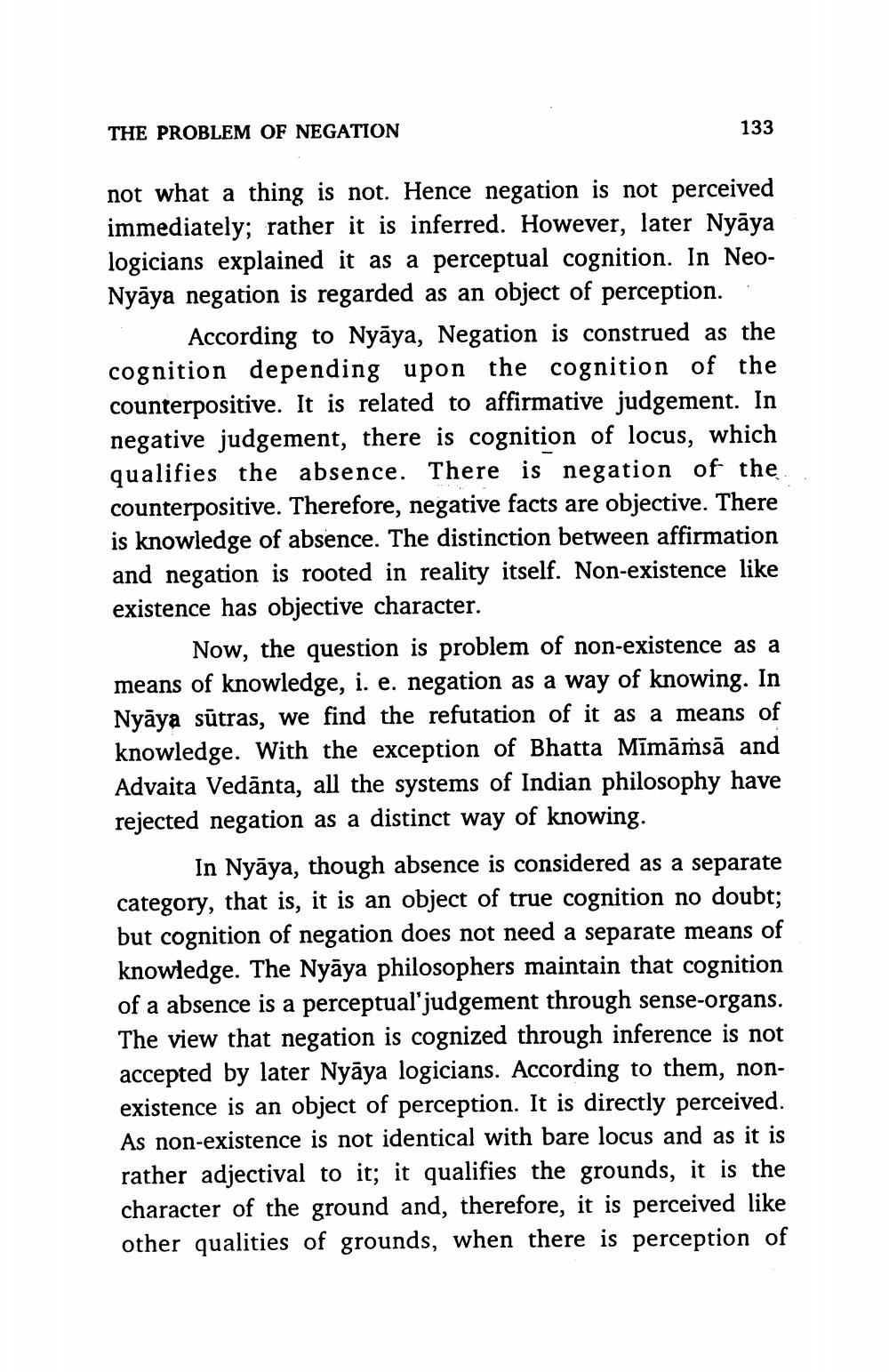________________
THE PROBLEM OF NEGATION
133
not what a thing is not. Hence negation is not perceived immediately; rather it is inferred. However, later Nyāya logicians explained it as a perceptual cognition. In NeoNyaya negation is regarded as an object of perception.
According to Nyāya, Negation is construed as the cognition depending upon the cognition of the counterpositive. It is related to affirmative judgement. In negative judgement, there is cognition of locus, which qualifies the absence. There is negation of the counterpositive. Therefore, negative facts are objective. There is knowledge of absence. The distinction between affirmation and negation is rooted in reality itself. Non-existence like existence has objective character.
Now, the question is problem of non-existence as a means of knowledge, i. e. negation as a way of knowing. In Nyāya sūtras, we find the refutation of it as a means of knowledge. With the exception of Bhatta Mīmāmsā and Advaita Vedanta, all the systems of Indian philosophy have rejected negation as a distinct way of knowing.
In Nyaya, though absence is considered as a separate category, that is, it is an object of true cognition no doubt; but cognition of negation does not need a separate means of knowledge. The Nyaya philosophers maintain that cognition of a absence is a perceptual' judgement through sense-organs. The view that negation is cognized through inference is not accepted by later Nyāya logicians. According to them, nonexistence is an object of perception. It is directly perceived. As non-existence is not identical with bare locus and as it is rather adjectival to it; it qualifies the grounds, it is the character of the ground and, therefore, it is perceived like other qualities of grounds, when there is perception of




